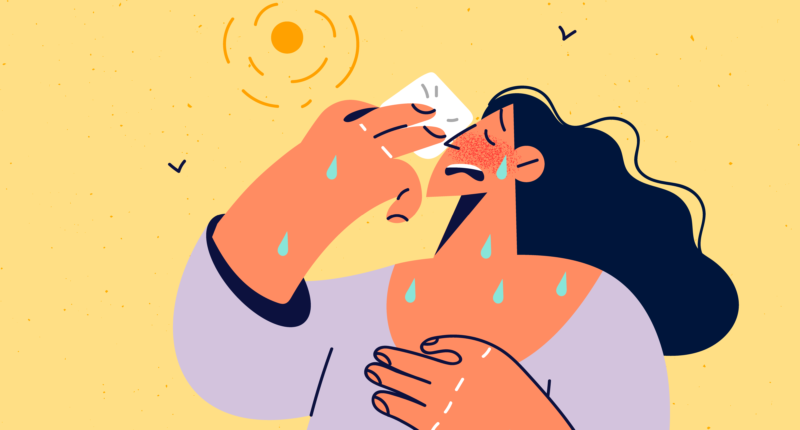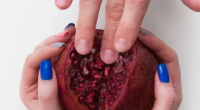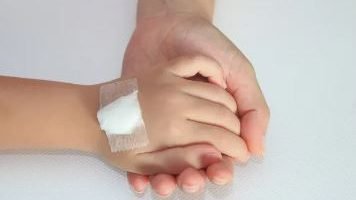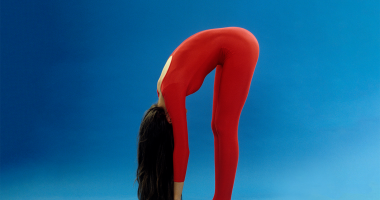3 Things to Do If the Heat Starts Making You Feel Physically Ill – Even the simplest everyday tasks—commuting to work, taking your pup for a walk, grabbing a bite outside—can feel like absolute hell in the increasingly hot, humid, and smoldering season known as summer. Maybe you start sweating profusely, craving water like it’s air, or even becoming nauseated or light-headed. No matter your symptoms, we really can’t blame you if 80-plus-degree temperatures are making you feel cranky, drained, and straight-up terrible.
As uncomfortable as sweltering summer weather can be, though, there’s a point when these annoying signs of overheating can enter dangerous territory, Catharina Giudice, MD, an emergency medicine physician and fellow at the Center for Climate, Health, and the Global Environment at Harvard TH Chan School of Public Health, tells SELF. “With heat exhaustion, for instance, you may start to feel dizzy or like your heart is racing,” Dr. Giudice says. In fact, a 2021 study found that temperatures above 100 can not only increase your heart rate but also raise your blood pressure and make it harder to breathe efficiently.
And those aren’t the only risks: You can also experience heat cramps, heat rash, heat stroke, or other forms of heat-related illness if your body temp rises too high and you can’t cool down, according to the Centers for Disease Control and Prevention (CDC).
In an ideal world, you’d be able to ride out a heat wave in an air-conditioned haven, but unfortunately that’s not a realistic option for most people: Not everyone has the luxury of AC. Plus, a lot of jobs require people to be outdoors, even during the hottest hours of the day (generally between 10 a.m. and 4 p.m.). Not to mention that summer is the season of outdoor festivities and adventures.
“That’s why it’s so important to have an action plan in mind to implement when you first notice that the intense heat is becoming a little too much to bear,” Dr. Guidice says. With that, these are her best tips for immediate relief the next time you need to beat the heat before it overpowers you.
Get in the shade ASAP.
When running home isn’t an option, taking refuge underneath a big tree, say, or the awning of a building can shield you from direct sunlight and alleviate some of your discomfort (especially if there’s a breeze). Even better, per Dr. Guidice: Duck into a nearby library, grocery store, or local pub—anywhere with AC can help you start to cool down and lower your body temperature.
Standing in the shade isn’t a guaranteed fix—especially if your symptoms are veering into heat exhaustion or heat stroke territory—and won’t actually lower the temperature or humidity outside, as SELF previously reported. But if the heat is making you feel ill and you don’t have AC access, a covered area will be a more comfortable environment to recover than, you know, being directly under the sun, Dr. Guidice says.
Drink liquids—ideally ones that have electrolytes—and plenty of them!
In high temperatures, humans sweat. You and your steamy armpits probably already knew that—but on a more scientific level, your body also loses sodium and other electrolytes via the perspiration process, which can lead to dehydration and increase your risk of overheating.
It’s best to drink water consistently throughout the day to avoid any of the above, but most of us realistically forget to hydrate from time to time. Also, you need more water the hotter (and sweatier) you get, Dr. Guidice explains. It’s important, then, to replenish yourself as soon as you notice you’re sweating more than usual, feeling weak and lethargic, or experiencing muscle cramps, because those are all telltale signs that you’re dehydrated and precursors to heat-related illnesses, per the CDC.
“Drinking water is standard, but if you’ve been sweating, it’s even better to opt for fluids containing electrolytes,” Dr. Guidice says. These electrically charged minerals like sodium and potassium (which, again, you lose via perspiration) help your body retain fluid in its cells. “Pedialyte is very effective for rehydration, and coconut water is a great alternative too,” she adds. “Gatorade can be good, but keep in mind that it typically has more sugar than the other options, which might not be ideal for people trying to manage their blood sugar.”
Don’t miss: 3 Abs Exercises Mark Wahlberg Swears By for a Chiseled Six-Pack
Soak a towel (or napkins) in cold water and place it on your neck.
The last time I felt close to fainting from the summer heat was after an outdoor workout, and let me tell you: I can’t overstate the difference it made to run a towel under cold water and plop it onto my neck, back, and shoulders. Seriously, it was more refreshing at the moment than chugging ice water—but you don’t have to take my word for it.
According to Dr. Guidice, placing a cold, wet towel on these areas—and, if you can, your chest and/or abdomen as well—can help cool your skin and lower your body temperature (a temporary yet effective hack that’s backed by research). However, make sure to avoid blocking your nose or mouth, which, Dr. Guidice says, can make it harder to breathe.
While a towel is ideal (since it’ll cover a larger surface area and hold more water, per Dr. Guidice), there’s a high chance that neither you nor the bystander watching you huff, puff, and pant have one handy. In that case, she suggests using cold, wet napkins—which you can probably source from a nearby coffee shop or fast food spot—or paper towels from a public restroom instead. To summarize the science: The water from the damp towel or napkin will evaporate and draw heat away from your body, cooling your skin and helping to regulate your temperature. And if you can stand in front of a fan or AC unit while you’re at it, you’ll chill out even faster, she adds.
We know that summer weather isn’t always a beach picnic. The temperature—especially in this, well, climate—can be pretty unbearable, but just remember that heat-related illness is largely preventable: You can take precautions, like investing in a portable, handheld fan, for example, or remembering to stay hydrated and wear lightweight, light-colored, and loose-fitting clothing. And if the forecast predicts yet another hot spell (ugh), be sure to have a plan in place before leaving the house. That way you can implement the advice above as soon as you start to feel symptoms like weakness, nausea, or hating everything (and everyone) around you.









